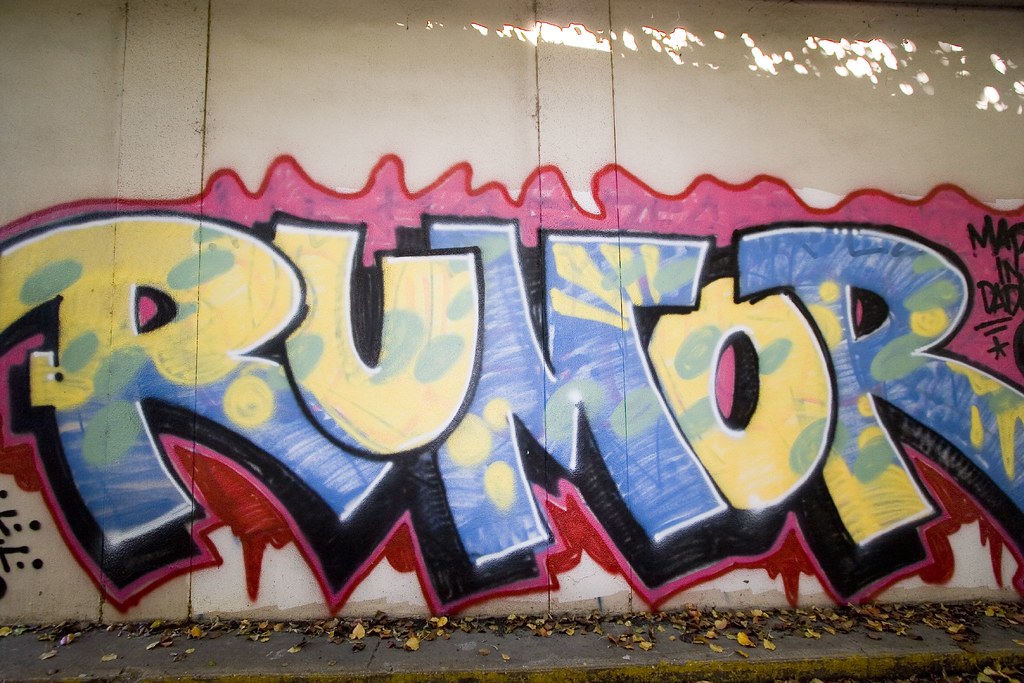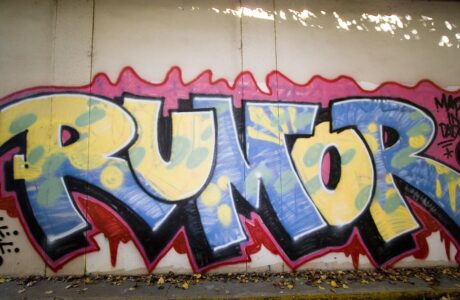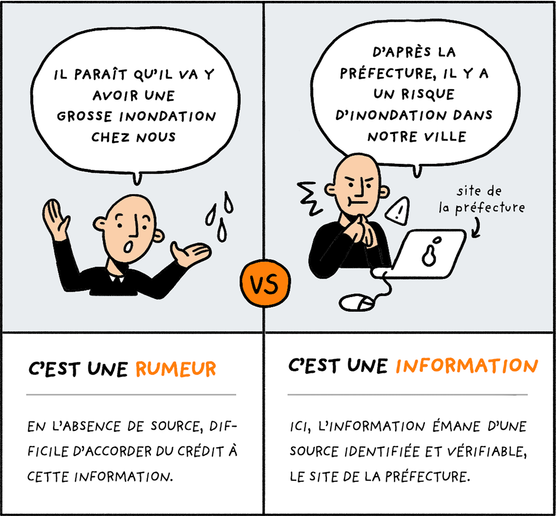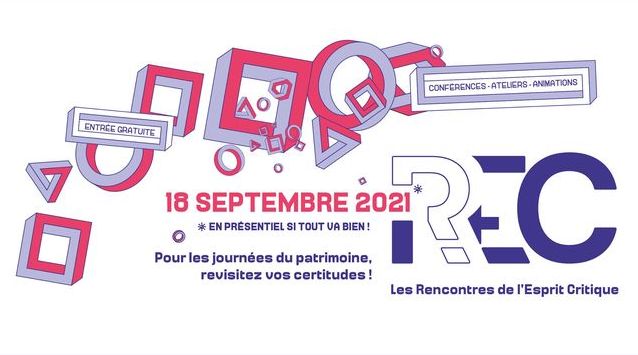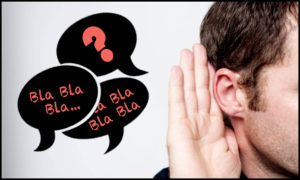 Image source: 🔗 UPP ALDERAN: WEB philo café | |
| Theme | What is a rumor? Information or disinformation? |
| Animation | UPP ALDERAN |
| Date and times | Tuesday, October 15, 2024 from 8:30 p.m. to 10:30 p.m. |
| Keywords | café, debate, rumor, information, disinformation, fake news, truthfulness, reputation, intentionality |
| Information | For more details on how the event works, see the page on the WEB philo café. |
Introduction▲
This WEB philo café is an “online” philo café, “on the web” where participants meet in a Zoom meeting to debate on a topic known in advance. It is the second online philo café hosted by the UPP ALDERAN association because other philo cafés exist “in person”, such as the Victor Schoelcher philo café in Toulouse.
Today’s debate topic is the rumor:
What is a rumor? Information or disinformation?
WEB Philo café, UPP ALDERAN, Tuesday, October 15, 2024.
Note: This article mentions elements of reflection from the debate with varying degrees of precision and does not transcribe the entire debate point by point. It is therefore not intended to be exhaustive in terms of its content but invites further reflection on the subject.
1. Definitions around the word rumor▲
1.1. Definition of the word rumor▲
1.1.1. Definition of the word rumor according to Wiktionary▲
- (countable) A statement or claim of questionable accuracy, from no known reliable source, usually spread by word of mouth.
- (uncountable) Information or misinformation of the kind contained in such claims.
- (uncountable, archaic) Report, news, information in general.
- (uncountable, obsolete) Fame, reputation.
- (uncountable, obsolete) Clamor, din, outcry.
1.1.2. Definition of the word rumor according to Wikipedia▲
A rumor (American English), or rumour (British English; see spelling differences; derived from Latin rumorem ‘noise’), is “a tall tale of explanations of events circulating from person to person and pertaining to an object, event, or issue in public concern.”.
In the social sciences, a rumor involves a form of a statement whose veracity is not quickly or ever confirmed. In addition, some scholars have identified rumor as a subset of propaganda. Sociology, psychology, and communication studies have widely varying definitions of rumor.
Rumors are also often discussed with regard to misinformation and disinformation (the former often seen as simply false and the latter seen as deliberately false, though usually from a government source given to the media or a foreign government).
Source: Rumor, Wikipedia, The Free Encyclopedia, 01/12/2024.

1.2. Definition of information according to Le Monde▲
Le mot information en lui-même, dans son sens médiatique, désigne des faits portés à la connaissance d’un public. Mais pour être considérée comme telle, une « info » doit répondre à au moins trois critères.
The word information itself, in its media sense, designates facts brought to the attention of an audience. But to be considered as such, “a piece of information” must meet at least three criteria.
- It must be of interest to the public.
- It must be factual.
- It must be checked.
Source: [FR] Qu’est qu’une information ? (What is information?), article Le Monde, October 26, 2022.
1.3. Definition of disinformation▲
Disinformation is misleading content deliberately spread to deceive people, or to secure economic or political gain and which may cause public harm. Disinformation is an orchestrated adversarial activity in which actors employ strategic deceptions and media manipulation tactics to advance political, military, or commercial goals. Disinformation is implemented through attacks that “weaponize multiple rhetorical strategies and forms of knowing—including not only falsehoods but also truths, half-truths, and value judgements—to exploit and amplify culture wars and other identity-driven controversies.”.
Source: Disinformation, Wikipedia, The Free Encyclopedia, 01/12/2024.
1.4. Word cloud around the word rumor▲

2. Some points I took away from the debate▲
2.1. The truthfulness, reliability, verification of the rumor▲
A rumor can be true or false. The veracity of a rumor is not established: it is doubtful because it has not been checked or its sources are not reliable, trustworthy. In this respect, it is similar to belief. I discuss the notion of belief in a blog article entitled REC 2021 where I look back on the first event called in French “Rencontres de l’Esprit Critique” (Critical Mind Meetings) in Toulouse in 2021.
2.2. Spreading and stopping the rumor▲
In the notion of rumor, there is the idea of transmission, propagation, diffusion. It is true or false information depending on whether it has been checked or not which spreads like a wave. It can spread within a small local group such as a village for example or now across the entire planet via the Internet and social networks for example. Generally, the extent of this transmission depends on the stakes, the prestige, the notoriety of the information and more precisely the people concerned by the rumor.
To stop a rumor, it is necessary to carry out a quality check of the information, but during the debate it was noted that, for example, we cannot always go back to the source, to the origin of the rumor, and that denying a rumor can also have the opposite effect. The expression “There is no smoke without fire” illustrates the point. Despite all the denials, all the verifications, if people persist in seeing smoke, they will continue to think that there is a fire. The discussions during the debate therefore led to the following observation: if the verification of sources was necessary to stop the rumor, it was not always sufficient.
2.3. Reputational Harm and Intentionality in Rumor▲
Finally, an important element on the notion of rumor was questioned: the intentionality of the person at the origin of the rumor and the damage to the reputation targeted by the rumor. The debate highlighted the harmful, damaging nature of the rumor. This is how rumor was brought closer to the word disinformation because of the desire to smear by spreading false or biased information. It was noted that rumors often concern famous people for this reason, even if they could also concern anonymous people in a more restricted context and that knowing the person or people targeted by the rumor more or less well was important in the creation and propagation of the rumor.
3. My personal view on the issue of debate▲
During the debate, I mainly spoke on three points:
- the question of the veracity of the rumor (true or false),
- the quality of the sources that contribute to the reliability of the rumor or rather to its stupidity,
- the importance of the behavior of the person who receives the information: take the time to check what they have heard. To not spread anything.
Furthermore, during the debate, I shared an anecdote about the importance of verifying information.
During a family dinner, exasperated by the poor level of reliability of the information on the news and mischievous, I challenged my relatives to prove to me the truth of the equality 1 + 1 = 2. To put it simply, I asked them to name me within five minutes a name or an important concept in mathematics allowing the justification. My husband understood what I was thinking and shook his head, amused by this little mathematical riddle.
When the time was up, my son was stumped and my husband ended up quoting Euclid (phew!) while telling me that during a man-in-the-street interview in the city no one would have thought of doing that.
My immediate response was: "Well, that's exactly the problem!".
My son then exclaimed: "Is that what Euclidean division is for?".
I answer her straight away: "So, you write in your notebook a qualifying adjective that you don't understand and it's ok for you? I don't congratulate you.".
"But, mom...".
With Euclid, the other word I was waiting for is axiom or postulate.
And I make the observation: "Well, if we are not capable of demonstrating this equality, what do we think of the quality of certain information that we hear in the media?". Personal sighs.
So, everyone agrees that the equality 1 + 1 = 2 is true. If we cannot prove it, it does not matter because there is no major repercussion: indeed, it will not prevent us from buying our baguette at the bakery, but this knowledge thus constitutes in fact for many people “only” knowledge. For this knowledge to be an acquaintance for oneself, one must be able to say why it is true.
So how do you prove that the equality 1 + 1 = 2 is true? How do you go about it? I share web links to four primary sources that allow us to assert that the equality 1 + 1 = 2 is true with a rigorous approach.

•••
🔗 Link to original image
Public domain

•••
🔗 Link to original image
Public domain

•••
🔗 Link to original image
Public domain
I now share three more secondary sources, in French, that discuss proving the truth of the equality 1 + 1 = 2 based on the previous primary sources.
So, how do you answer the question "Why is the equality 1 + 1 = 2 true?"?
It is sufficient to answer that the equality 1 + 1 = 2 is true within the framework of Euclid's mathematics based on the five postulates (or axioms) of Book I of his work entitled Elements, the one that we learn at school at the time when we also learn to read, write and count. It is the precision of the framework, here of the postulates used, that makes the equality true.
Important note: we live in a world that is not Euclidean. Indeed, the universe in which we live does not verify one of the five postulates of Euclid’s mathematics: the one concerning the drawing of a parallel line. That said, because of the framework of its use, we can nevertheless continue to use Euclid’s mathematics in everyday life without worry 🙂
Conclusion▲
To conclude and answer the question asked, I choose to write the following sentence: “Rumor is disinformation that is spread with the intention of hurting, of harming.” For this online café-debate, we can also adopt this final word that I find very appropriate, which was said during the evening and that the Descartoise that I was appreciates:
Je murmure donc je suis.
WEB philo café, UPP ALDERAN, October 15, 2024.My personal translation
I whisper therefore I am.
Pause-café chez Sonia, article What is a rumor? Information or disinformation?












